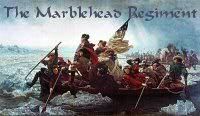Defending Christianity
But then in the article, it said this:
Disney is counting on Christian audiences to boost its "The Chronicles of Narnia: The Lion, the Witch and the Wardrobe."Now, it has always been my understanding that the Chronicles of Narnia are books full of Christian symbolism. Christians are not simply interpreting Aslan as Jesus Christ; Lewis wrote him that way.
The film, based on the C.S. Lewis book, is a big-budget fantasy epic and the first in a series Disney hopes will rival the popularity of "The Lord of the Rings" trilogy. Some Christians interpret the book — a staple of children's literature — as an allegory in which the hero, the lion Aslan, represents Jesus Christ.
Disney hired Motive Entertainment, the same group that marketed "The Passion of the Christ" to churches, to sell "Narnia" to Christian audiences. Dozens of churches nationwide will host sneak peeks of parts of the film before its December opening.
"As good business people, we'd be silly not to tap into every fan of the book and hope they will become a fan of the movie," said Disney's Rice. "We don't believe we're making a Christian movie. We believe we're following the story of the book faithfully and allowing everyone to interpret it how they want depending on how they've connected to the book." (emphasis added)
Lewis turned away from his Christian upbring and became an atheist until he was in his early 30s. In 1931, after talking with J.R.R. Tolkien, a devout Catholic, and another friend, C.S. Lewis became a Christian. After that, his work abounded with Christianity. The Narnia Chronicles were no different.
Tolkien even criticized Lewis for writing an allegory, prefering to be more subtle with his symbolism.
Perhaps Lewis did not explicitly put Christian symbolism into the stories; there are no epiphanies where the characters say, "Aslan is Jesus!" Yet, if one reads deeper, one finds it.
Lewis has emphatically denied that he sat down to write a series of stories that were encoded depictions of Christian truth, or moral lessons sugarcoated to appeal to children. Nevertheless, the Christian element of the Narnian mythos is unmistakable. So how did this element find its way into the stories? Well, in a sub-creative fashion, Lewis saw his handiwork — the Lion Aslan, and he saw that it was good.A news writer saying that "Christians interpret" the works as religious symbolism is wrong. It isn't as though we have taken some book by some atheist author and declared this character represents Jesus and this character respresents Peter, and so on. These books were written by a Christian author who wrote them as Christian stories, regardless of whether he intended to or not. One cannot strip them of their Christianity and have anything worthwhile left.
Immediately the author recognized the potential of his character. A lion had come "bounding" into the story, and He was obviously one of great importance. Lewis quickly noted the numinous awe in which the other characters held him. Also, it was not lost on him that the lion was a recurrent Biblical symbol for the Christ. Here the author asked "what if the Son of God entered into a world of talking animals in the form of a lion?" If Lewis could present a Narnian version of the Incarnation, he would have a forum to articulate some of his most precious feelings about his God. And he could do so without the Law, without religious duty and hypocrisy entering into the equation.
It had been Lewis's personal experience that what made it hard to feel the way one ought to feel about one's God was the sheer fact that there were feelings one ought to have. With Aslan, Lewis had a tabula rasa. He could enjoin the reader to feel love and devotion without that suffocating sense of duty. He could convey his own great gratitude and love for his God without sermonizing. He could, as he once put it, "steal past those watchful dragons." (Source
Perhaps one can enjoy the books without knowing about or being interested in Christianity, but one cannot fully experience them until one knows the depths and love that Lewis put into them.
The Chronicles of Narnia are Christian books. We Christians don't just imagine that to be so.
 I Remember
I Remember
















































<< Home